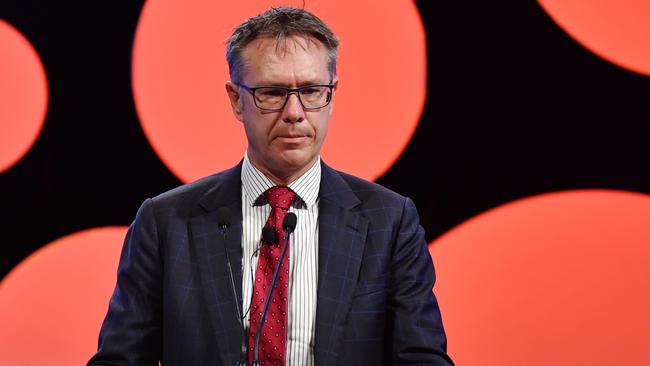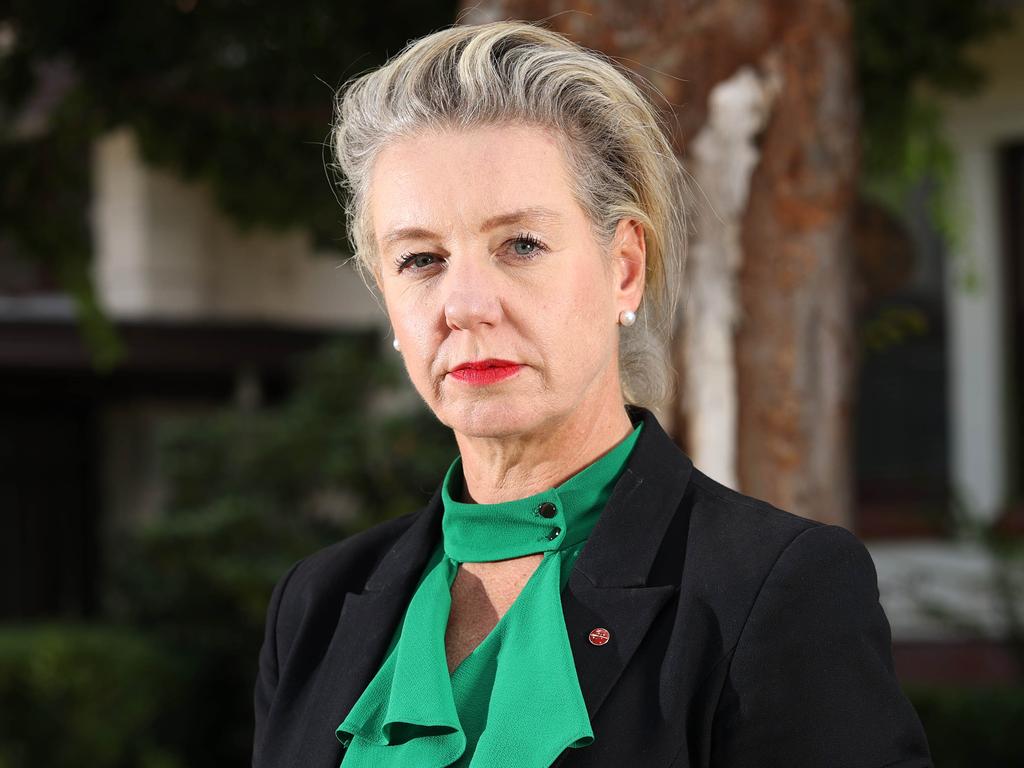RBA warns climate-conscious investors could dump Australia
Deputy governor Guy Debelle warns of a growing risk that climate-conscious global investors will move elsewhere.

Reserve Bank deputy governor Guy Debelle has warned of a growing risk that climate-conscious global investors will move to “significantly divest” from Australia, as global financial markets gravitate towards greener opportunities.
As the pressure for Australia to adopt a net zero by 2050 emissions target grows ahead of a global leaders summit on climate change in Glasgow at the end of this month, Dr Debelle also warned that “simply shutting down parts of the economy is unlikely to deliver a socially optimal transition”.
“It is not necessary today to go down such a path, though the time we have before such a path might be necessary is decreasing,” he said.
His comments came as mining magnate Andrew Forrest on Thursday took aim at politicians who stand in the way of the transition to the new energy economy.
Addressing the National Press Club in Canberra, Dr Forrest warned if Australia did not commit to net zero ahead of a major climate change summit, the stain would last “forever”.
“If we miss declaring carbon neutrality at COP26, we’ll eventually be forced to make it anyway,” he said.
“But by then our markets and our financing will dry up, and the stain that leaves, that we simply didn’t care, that we ignored our youth, we got the politicians we deserved, will count against us forever.”
Dr Debelle said “countries and economies need to transition sustainably. Some projects that are not ‘green’ will nevertheless be needed to assist an economy transition to net zero.
“Investing in a reduction in carbon emissions can still be an important part of the transition, even if the immediate outcome is not zero emissions.”
In a speech to the CFA Australia Investment Conference on Thursday detailing the work the Reserve Bank and regulators were doing to assess the risks to the Australian banking system from climate change, Dr Debelle said “climate comes up in most conversations I have with foreign investors”.
“To date, these discussions have not led to any obvious change in investor appetite for Australian bonds or equity, with only a few small exceptions,” he said.
Those exceptions included Swedish bank Riksbank discontinuing its investment in Queensland and West Australian state government debt a few years ago.
“There is a risk we will see more of these divestment decisions sooner rather than later,” Dr Debelle said.
“Investors will adjust their portfolios in response to climate risks.
“Governments in other jurisdictions are implementing net zero policies. Both of these are effectively increasing the cost of emissions-intensive activities in Australia.
“So, irrespective of whether we think these adjustments are appropriate or fair, they are happening and we need to take account of that. The material risk is that these forces are going to intensify from here.”
The RBA is watching for divestment announcements as soon as later this month, with Dr Debelle flagging the possibility of COP26 providing a focal point for countries to heap pressure on Australia.
“(Divestment) is a risk. We haven’t really seen much manifestation of it, (but there is a) slight concern that we may see some announcements of decisions in this space around COP26,” he told the conference.
“COP26 provides a focal point for announcements of this sort. We are actively monitoring and running a list of who is making these sort of decisions.
“To date they’ve been small, but we are seeing increased noise around it. Whether that noise translates into action remains to be seen, and I think we will be alert to it over the next few weeks.”
Climate is “right up there” as one of the biggest risks the RBA is monitoring, Dr Debelle said.
“On some level it’s almost an existential risk, which puts it higher than many other risks that we’re thinking about … over a horizon which now is not necessarily all that long.
“And so in that sense it is a heightened risk, but it is going to play out over a number of years, although we are seeing the physical risks manifest themselves more frequently.”
The unpredictability of climate events and risks, including divestment, was an added challenge, he said, as he cautioned on the uncertain impact of greener capital allocation decisions on Australia.
“We can talk about, say, a slowdown in China, and have a reasonable sense of how we can translate that through to its impact on the Australian economy, but on the climate front, we don’t know how and when some other countries are going to put in place some of these policies which may have a direct impact on us,” Dr Debelle said.
All of Australia’s major energy trading partners had already brought in net zero emissions policies, he said.
“We haven’t seen the impact of them yet because they have to put them in place but that may well start to play out in a fairly short horizon,” he warned.
Ahead of the global climate change summit, the Morrison government has flagged it is prepared to adopt the growing global consensus of aiming for net zero emissions by 2050.
Treasurer Josh Frydenberg in a speech last month addressed the reality that climate change was driving global capital allocation decisions.
“We cannot run the risk that markets falsely assume we are not transitioning in line with the rest of the world,” Mr Frydenberg said.
“Were we to find ourselves in that position, it would increase the cost of capital and reduce its availability, be it debt or equity.”
The central bank is also starting to look at the stranded asset risk within the unlisted space, Dr Debelle said.
“The challenge always in the unlisted space is valuation. Climate is a particular manifestation of that, though not the only one. But it does eventually add another layer of complexity to evaluation in that space,” he said.
“Be it listed or unlisted, the sort of infrastructure we’re providing is looking at the economy as a whole.
“The banks pretty much lend to all parts of the economy, so even if you’ve got an asset in the unlisted space, I think the information we will be putting out in the period ahead will provide some tools to be able to assess the climate risk of that.”







To join the conversation, please log in. Don't have an account? Register
Join the conversation, you are commenting as Logout